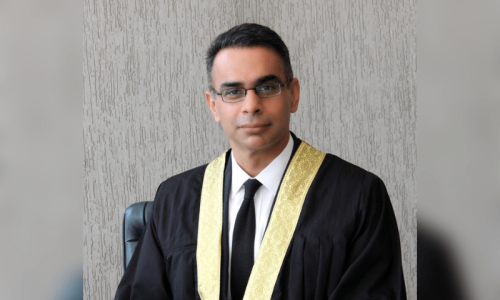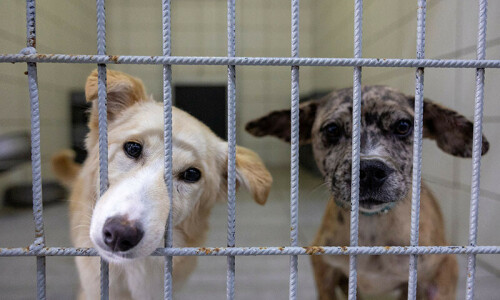The honey harvesting business is on a steep decline in Khyber Pakhtunkhwa owing to lack of facilities provided by both the provincial and federal governments.
The earnings from export proceeds are estimated at Rs5bn per annum mostly shipped to the Gulf States.
In KP, beekeeping has emerged as the sector with the second greatest export potential after carpet manufacturing, but growth has stagnated due to several factors.
The association demands that the bee business be given the status of an industry, a step which will save exporters from local taxes and enable them to avail other incentives
The beekeeping business was developed in the wake of the Soviet occupation of Afghanistan in 1979. The United Nations Higher Commission for Refugees had commissioned a beekeeping programme for migrant Afghan families mostly settled in KP. Under the programme, boxes were donated to each migrant family along with training to start business at a small scale.
The UN agency also helped in importing bees from Australia and Italy.
Honeybee Keepers and Exporters Association Khyber Pakhtunkhwa, President Saleem Khan said that 90pc of bee farmers are Afghan nationals, while the remaining 10pc are Pakistanis.
The recent government crackdown against Afghan refugees has had a dire impact on the province’s honey production. Mr Khan said that visas and work permits are major hurdles in the honey production chain. “Proper work permits should be issued to the refugees to save the business from total collapse”, he stated.
Not only does the crackdown hinder the transportation of valuable beehives, the police also charge bee farmers Rs500 to Rs1,000 per truck. The association therefore demands that the bee business be given the status of an industry, a step which will save exporters from local taxes and enable them to avail other incentives.
There are many types of honey produced in KP, but Jujube (bair) and Acacia Modesta (palusa) have the largest production. Others are Acacia Nilotika (kikar), Oregano (sperkai), Peach blossom (shaftalo), Orange blossom and Sunflower.
The palusa honey season is April-May, while the bair honey season is September-October.
The Bair honey variety is sold in the range of Rs1,200 to Rs2,000 per kilogramme, while Palusa — considered to be the second best honey — is sold in the range of Rs250 to Rs300 per kg in the domestic market. The most expensive and rare honey is produced by small bees from genuine flowers.
The sector mostly operates in an informal way. There are no common honey processing and packaging facility centres. There is no training centre to teach proper honey extraction, neither is there any honey cleaning and packing facility to aid exporters.
The bulk of Pakistani honey finally reaches Yemen where it is re-packed for selling in the Gulf states, then exported to Europe and America under Yemeni brands
The honey business is spread over different districts of the province namely Swat, Naran, Kaghan, Peshawar, Mardan, Karak, Kohat, Haripur and some areas of FATA. There are 50,000 to 60,000 bee farms.
According to bee farmer Abdul Jaleel, a single farm consists of 120 boxes with each box having the capacity to hold 33,000 bees. A single farm produces 1,000kg of honey per season.
He says the cost of each box is Rs6,600. But these days Afghans are selling their boxes at throwaway prices; boxes which, if not properly handled, will endanger the lives of the bees.
Mr Jaleel adds that June and July are off-season months when bees require 150 to 200 bags of sugar for food.
To improve bee production, the government needs to come up with refresher courses for bee farmers such as how to allow beehives on crops thereby improving productivity, and ensuring bee health by avoiding high temperatures and pesticides; according to the association of bee farmers.
The PTI-led coalition government has already announced its billion-tree tsunami drive. Bee farmers demand the re-plantation of jujube trees, which have been missing from the project. The plantation will provide food for the bees.
Pakistan exported 600 containers honey to Gulf States during 2015-16. Each container weighed 19,600kg. This means that the total quantity of honey exported was around 11,760,000kg. The major destination for these is Saudi Arabia followed by the UAE.
The association president said that a container costs Rs300,000 with freight and taxes on export, and that duty, taxes and clearing in Saudi Arabia push the total up to Rs500,000. “We can save this amount if the government takes up this issue with the Saudi authorities”, he said.
The bulk of Pakistani honey finally reaches Yemen where it is re-packed for selling in the Gulf States, then exported to Europe and America under Yemeni brands. After re-packing the honey is sold at a price of 50-400 Saudi riyal per kg, while Pakistani honey, after clearance at the Saudi port costs 30-100 Saudi riyal per kg.
Pakistan is losing billions because the government has not initiated developing processing and packaging facilities to meet international standards. Some experts say the government needs to develop bee clusters in the province.
To increase honey export, a honey board should be established with representation from all stakeholders including the association and forest department.
The board can also work for the promotion of investment in the sector; seek preferable markets for export and help exporters register.
The government can develop the bee industry in KP on the Canadian pattern where there is a dedicated beekeepers council.
There is also a need for adequate training and micro loans to assist the sector and become a leading export hub.
Published in Dawn, Business & Finance weekly, November 28th, 2016












































